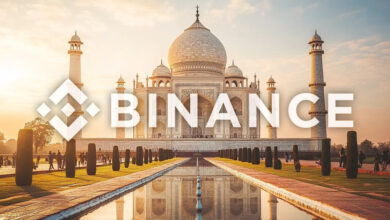Asia crypto hubs introduce new bans to lending, staking for retail investors

The Asian crypto hub Singapore and neighboring Thailand have released new directives over the handling of digital assets in two announcements on July 3.
Singapore’s six new requirements for crypto businesses
The Monetary Authority of Singapore (MAS) issued six new requirements for crypto firms to protect crypto investors. In addition to the new rules, MAS banned exchanges from providing lending or staking services to its retail users.
MAS said lending and staking are “generally not suitable” for retail investors. The central bank, however, said that exchanges could continue to provide lending and staking services to its institutional and accredited investors.
In its new rules, MAS has directed exchanges to segregate user and business assets and keep user assets in a statutory trust.
The central bank noted:
“This [depositing user assets in a trust] will mitigate the risk of loss or misuse of customers’ assets, and facilitate the recovery of customers’ assets in the event of a DPT [digital payment token] service provider’s insolvency.”
The exchanges registered in the city-state have until the end of the year to comply with the new rules.
Under the new guidelines, crypto exchanges must separate their custody business from other units. This would ensure the custody function is “operationally independent” of different business units and insulated from the associated risks.
The new rules dictate that crypto service providers have to ensure the safety of user funds and keep proper records with daily reconciliation of user assets. More importantly, exchanges must ensure that the access and operational controls to customers’ digital assets remain within Singapore. The monetary authority has also required clear risk disclosures on exchanges.
According to a report by The Straits Times citing unnamed sources, while the rules were no surprise, industry players in Singapore had hoped for more to maneuver.
More rules to come
MAS’ new rules come after it received public input on its consultation on increasing investor protection launched in October 2022. MAS is seeking feedback on the draft amendments to the Payment Services Regulations to incorporate the new requirements.
Additionally, MAS launched a separate consultation paper today on implementing further requirements on crypto businesses to curb unfair trading practices. The report sets out legislative provisions and the types of misconduct considered offenses, like market rigging and manipulation.
The requirements set out in the paper include active surveillance to detect unfair trading practices, careful handling of confidential information, and maintaining policies for personal trading by employees.
Risk warning, again
MAS reiterated its warning for the public to remain wary of cryptocurrency risks. The central bank noted that while the new rules will “minimize” the risk of loss of user assets, in case of bankruptcy, users will still face “significant delays” in recovering assets.
It noted:
“MAS reminds the public that regulations alone cannot protect consumers from all losses, given the extremely high risk and speculative nature of DPT trading.”
Therefore, investors should “exercise utmost caution” while trading crypto. As MAS said, there are chances of a total loss of assets. The central bank added that investors should not engage with unregistered local and international exchanges to avoid losing their crypto.
New Thai directives on digital assets
The Thai Securities and Exchange Commission has also issued new guidelines focused on increasing transparency and reducing risk in the digital asset sector. The regulatory body established explicit criteria for risk warning disclosures from digital currency operators and introduced prohibitions against certain services.
According to the committee, the new measures are designed to enhance investor protection and ensure traders are well-informed about the inherent risks associated with digital currencies. Following meetings in September and December of 2022 and again in May of 2023, the committee approved resolutions establishing the requirements for risk disclosures and the prohibition of certain services.
The new regulations explicitly ban digital asset businesses from accepting digital currencies and using deposited assets for lending or investment purposes while promising returns to the depositors.
The guidelines also target staking by prohibiting such businesses from offering returns from depositing digital assets unless it falls under promotional activities defined by the Thai SEC rules. Further, companies are not allowed to advertise or persuade the public to engage in such services.
In further regulatory developments from Asian markets, on Friday, June 30, the South Korean National Assembly passed the Virtual Asset User Protection Act, a comprehensive legislation combining 19 crypto-related bills intended to regulate the industry, punish illicit financial activities, and provide investor protection following a series of crypto-related scandals in the country.





